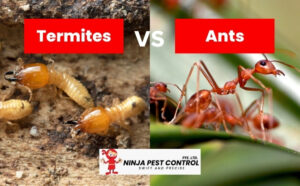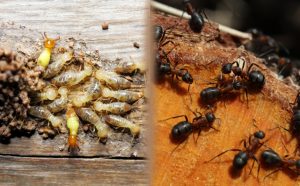Termites are one of the most destructive pests that can infest your home in Singapore. They feed on wood and cellulose materials, causing extensive damage to your property if left untreated.
According to statistics from the National Environmental Agency (NEA), there were over 13,000 cases of termite infestation reported in 2020 alone. This highlights the importance of being aware of whether your home is at high risk for termites in Singapore.
Today, we will discuss factors that increase the risk of termite infestation in your home, and ways to prevent them from wreaking havoc on your property.
Factors That Increase Risk of Termite Infestation
There are several factors that can increase the risk of termites infesting your home. These include:
- Moisture: Termites thrive in damp environments, making Singapore’s humid climate a perfect breeding ground for them.
- Wooden Structures: As termites feed on wood, homes with wooden structures such as beams, frames and flooring are highly susceptible to infestations.
- Cracks and Openings: Termites can enter your home through even the smallest cracks and openings in your walls or foundation.
- Cluttered Areas: Accumulation of debris, dead plants and other clutter around your house provides an ideal environment for termites to breed and hide.
How Singapore’s Climate is Ideal for Termites
Singapore’s warm and humid climate creates the perfect breeding ground for termites. In fact, Singapore has been ranked as one of the top ten countries with the highest termite infestations in the world.
The constant high temperatures and humidity levels provide a hospitable environment for termites to thrive, making it a haven for these destructive pests.
Impact of Climate on Termite Infestations
The ideal temperature for termites to breed and multiply is between 25°C to 35°C, which is similar to Singapore’s year-round average temperature. Additionally, Singapore experiences heavy rainfall throughout the year, providing an abundant source of moisture for termites to survive.
Moreover, the city-state’s urban landscape and high population density create an ideal setting for termites to spread quickly from one building to another. This is especially true in residential areas, where homes are built close together, providing easy access for termite colonies to move around.
How Do You Know If You Have a Termite Infestation?
It can be difficult to detect a termite infestation, as these pests often hide within walls and other hard-to-reach areas. However, there are some signs you can look out for that may indicate the presence of termites in your home.
- Mud Tubes: Termites build mud tubes to travel from their colony to their food source, which is often inside wooden structures. These mud tubes are about the width of a pencil and may be found near the foundation of your home.
- Wood Damage: As termites feed on wood from the inside out, they can cause significant damage to wooden structures before it becomes noticeable. Look for hollowed-out or damaged wood, as well as small holes and tunnels in wooden surfaces.
- Swarms: During the springtime, termites may swarm in order to establish new colonies. If you see a large number of flying insects around your home, it could be a sign of a termite infestation.
Termite Prevention in Singapore’s Climate
In a warm and humid climate like Singapore, preventing termite infestations is crucial for maintaining the structural integrity of your home. Here are some tips to keep your home termite-free:
- Regular Inspections: Schedule regular inspections by a professional pest control company to check for any signs of termite activity. They can also help identify areas of concern and provide effective treatment options.
- Eliminate Moisture: Termites thrive in moist environments, so it’s important to eliminate any sources of excess moisture in and around your home. Fix leaky pipes, ensure proper drainage, and clear out any clogged gutters.
- Remove Wood-to-Ground Contact: Wooden structures that come into contact with the ground are at a higher risk for termite infestations. If possible, elevate them or use treated wood to prevent termites from accessing it.
Seeking Professional Help
If you suspect or have confirmed a termite infestation in your home, it’s best to seek professional help. Termite control professionals have the knowledge, expertise, and equipment to effectively eliminate termites and prevent future infestations.
When choosing a pest control company, be sure to do your research and choose one that is reputable and experienced in dealing with termites. They should also offer a warranty or guarantee for their services.
During the inspection and treatment process, make sure to follow any instructions given by the professionals. This may include vacating the premises for a certain amount of time or taking precautions with household items.
Takeaway
Termites are a serious and costly problem that should not be taken lightly. Prevention is key, so regularly inspecting your home for signs of termites and taking proactive measures can save you from dealing with a full blown infestation.
If you do find termites in your home, it’s important to seek professional help and follow their instructions carefully. With proper prevention and treatment, you can protect your home from the damage that termites can cause.
Stay vigilant and take action as soon as possible to ensure the safety and integrity of your home.




